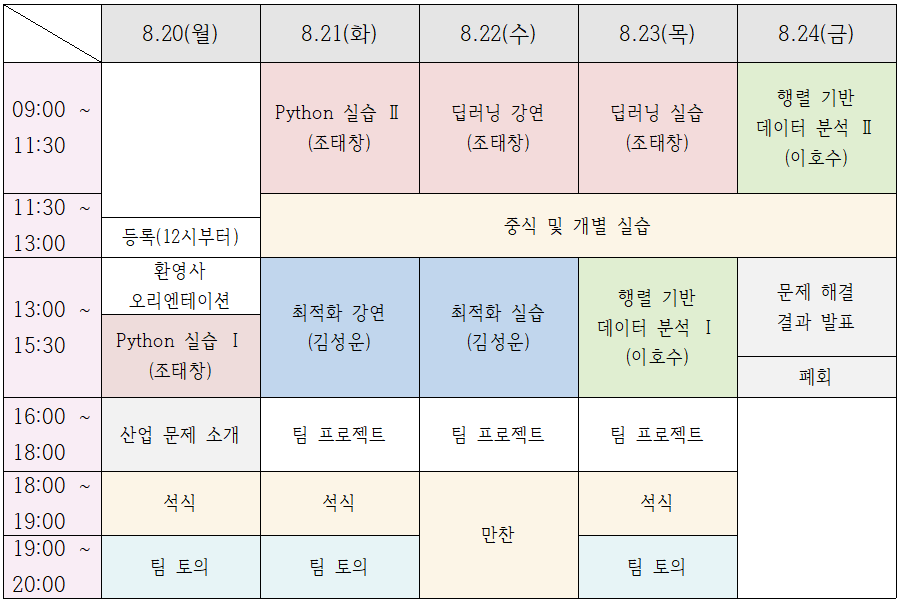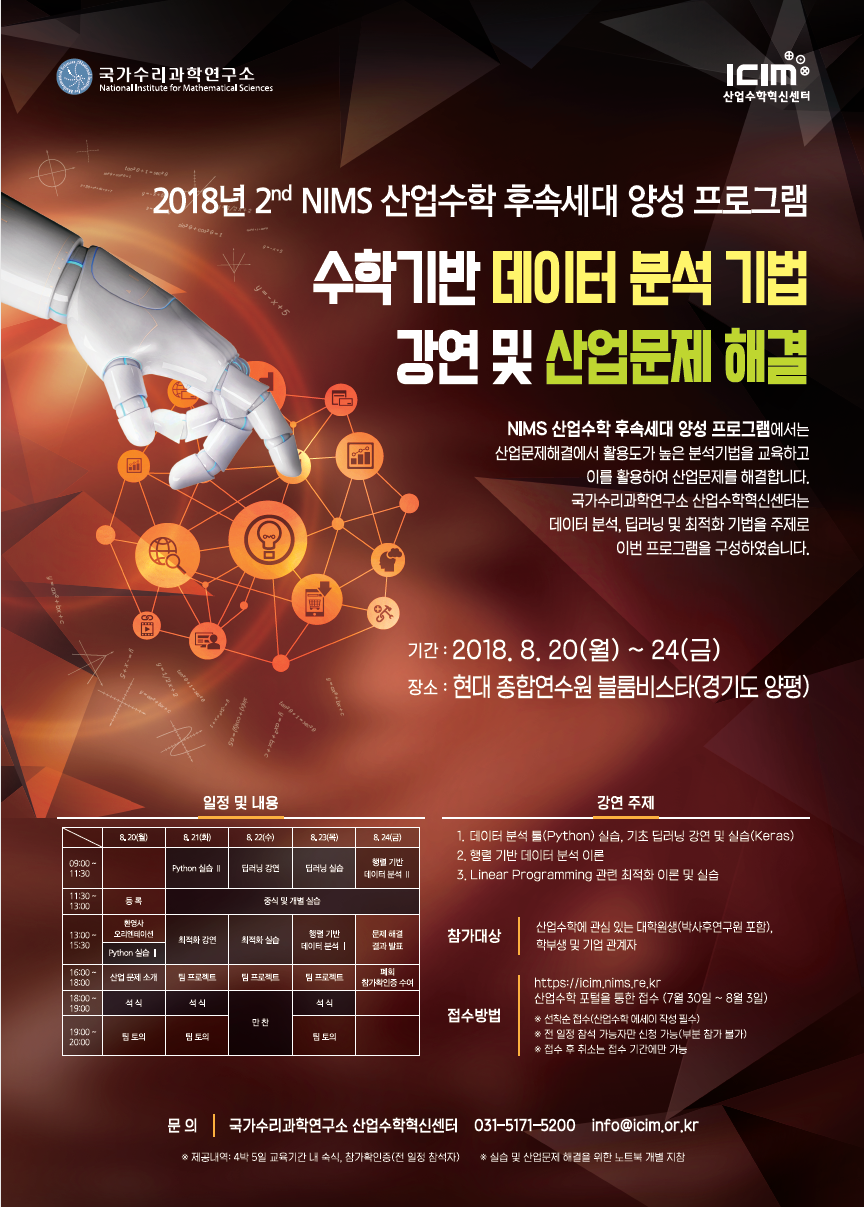Scholarship Event
NIMS Industrial Mathematical Subsequent Generation Training Program - Mathematical-based Data Analysis Technique Talks and Solving Industry Problems
- Announcement ICIM
- Organizers ICIM
- Date 2018-08-20 ~ 2018-08-24
- Place Bloomvista of the Hyundai Training Center
- Host Head of the Center Heo Jun
The NIMS Industrial Mathematical Follow-up Program educates and utilizes highly utilized analysis techniques for solving industrial problems solve industrial problems
The Center for Industrial Mathematical Innovation at the National Institute of Mathematical Sciences
We organized this program under the theme.
1. August 20, 2018 to 24 (Friday)
2. Places :
3. Participants: Graduate students interested in industrial mathematics (including post-doctoral researchers), undergraduate and business personnel
4. Receipt method: Receiving on the Industrial Math Portal (https://icim.nims.re.kr)
5. Time to receive: July 30, 9:00 a.m. to August 3/ Early closing if personnel are exceeded
- First-come-first-served (required to write an industrial math essay, see attached file)
- Only those who can attend the entire schedule can apply (partially not allowed)
- Cancellations can only be made during the reception period.
- Individual laptops for practical and industrial problem resolution
- details of the provision: room and attendance confirmation within the 5-day training period (all participants on schedule)
6. Schedules and Contents

7. Speakers and Subjects
- Professor Cho Tae-chang of Inha University (four times): Data Analysis Tool (Python) Lab, Basic Deep Learning Talk and Practice (Keras)
- Professor Lee Ho-soo of Sungkyunkwan University (2 times): Matrix-based data analysis theory lecture
- Dr. Kim Sung-woon of the National Institute of Mathematical Sciences: Optimization Theory and Practice
8. Process for solving industrial problems
- Introduction of industrial issues prepared by the Industrial Mathematical Innovation Center (Feb. 20)
- Each student participates in the questions they wish to take advantage of the data analysis they learned from the talk to participate in the troubleshooting process.
- Each team will present their findings on the afternoon of June 24

The NIMS Industrial Mathematical Follow-up Program educates and utilizes highly utilized analysis techniques for solving industrial problems solve industrial problems
The Center for Industrial Mathematical Innovation at the National Institute of Mathematical Sciences
We organized this program under the theme.
1. August 20, 2018 to 24 (Friday)
2. Places :
3. Participants: Graduate students interested in industrial mathematics (including post-doctoral researchers), undergraduate and business personnel
4. Receipt method: Receiving on the Industrial Math Portal (https://icim.nims.re.kr)
5. Time to receive: July 30, 9:00 a.m. to August 3/ Early closing if personnel are exceeded
- First-come-first-served (required to write an industrial math essay, see attached file)
- Only those who can attend the entire schedule can apply (partially not allowed)
- Cancellations can only be made during the reception period.
- Individual laptops for practical and industrial problem resolution
- details of the provision: room and attendance confirmation within the 5-day training period (all participants on schedule)
6. Schedules and Contents

7. Speakers and Subjects
- Professor Cho Tae-chang of Inha University (four times): Data Analysis Tool (Python) Lab, Basic Deep Learning Talk and Practice (Keras)
- Professor Lee Ho-soo of Sungkyunkwan University (2 times): Matrix-based data analysis theory lecture
- Dr. Kim Sung-woon of the National Institute of Mathematical Sciences: Optimization Theory and Practice
8. Process for solving industrial problems
- Introduction of industrial issues prepared by the Industrial Mathematical Innovation Center (Feb. 20)
- Each student participates in the questions they wish to take advantage of the data analysis they learned from the talk to participate in the troubleshooting process.
- Each team will present their findings on the afternoon of June 24



